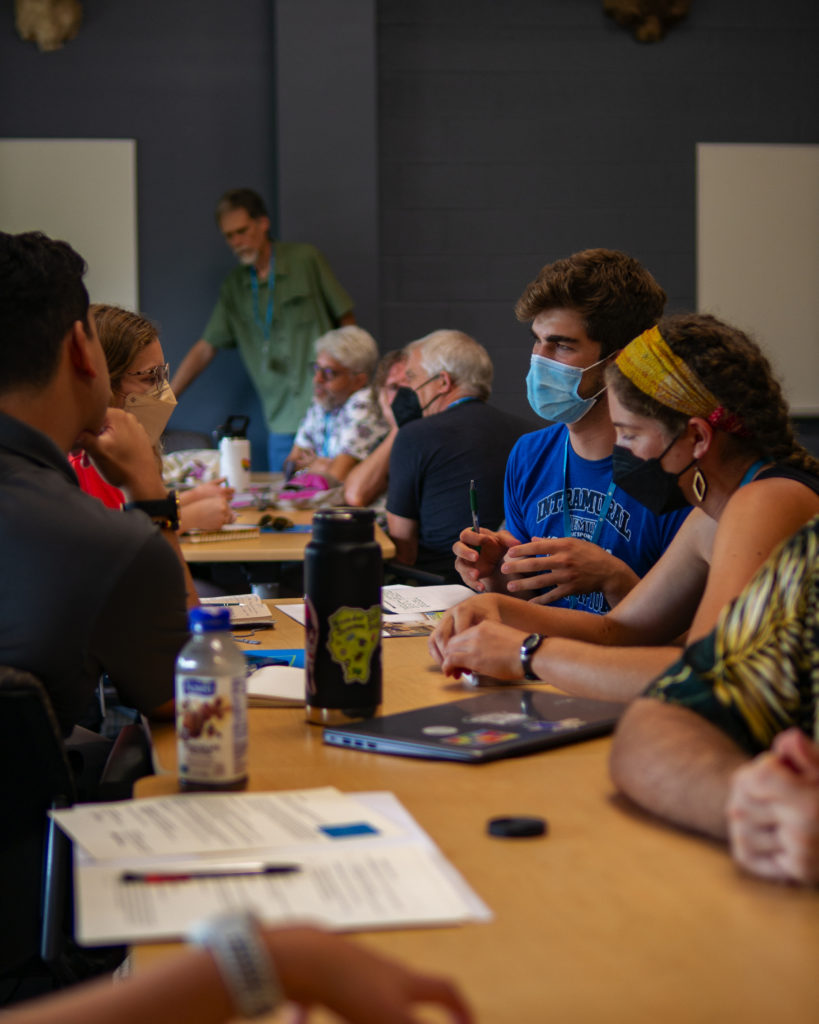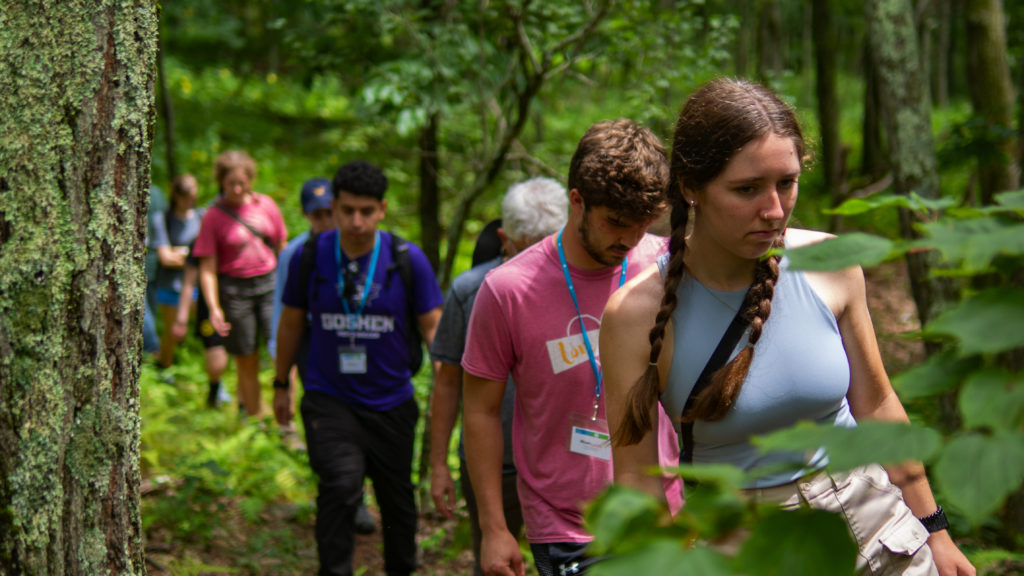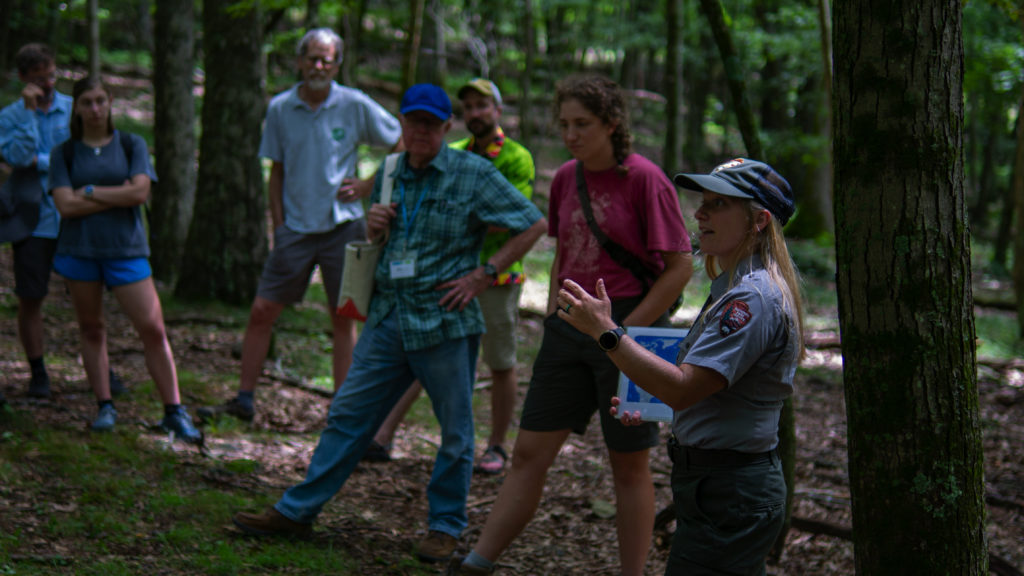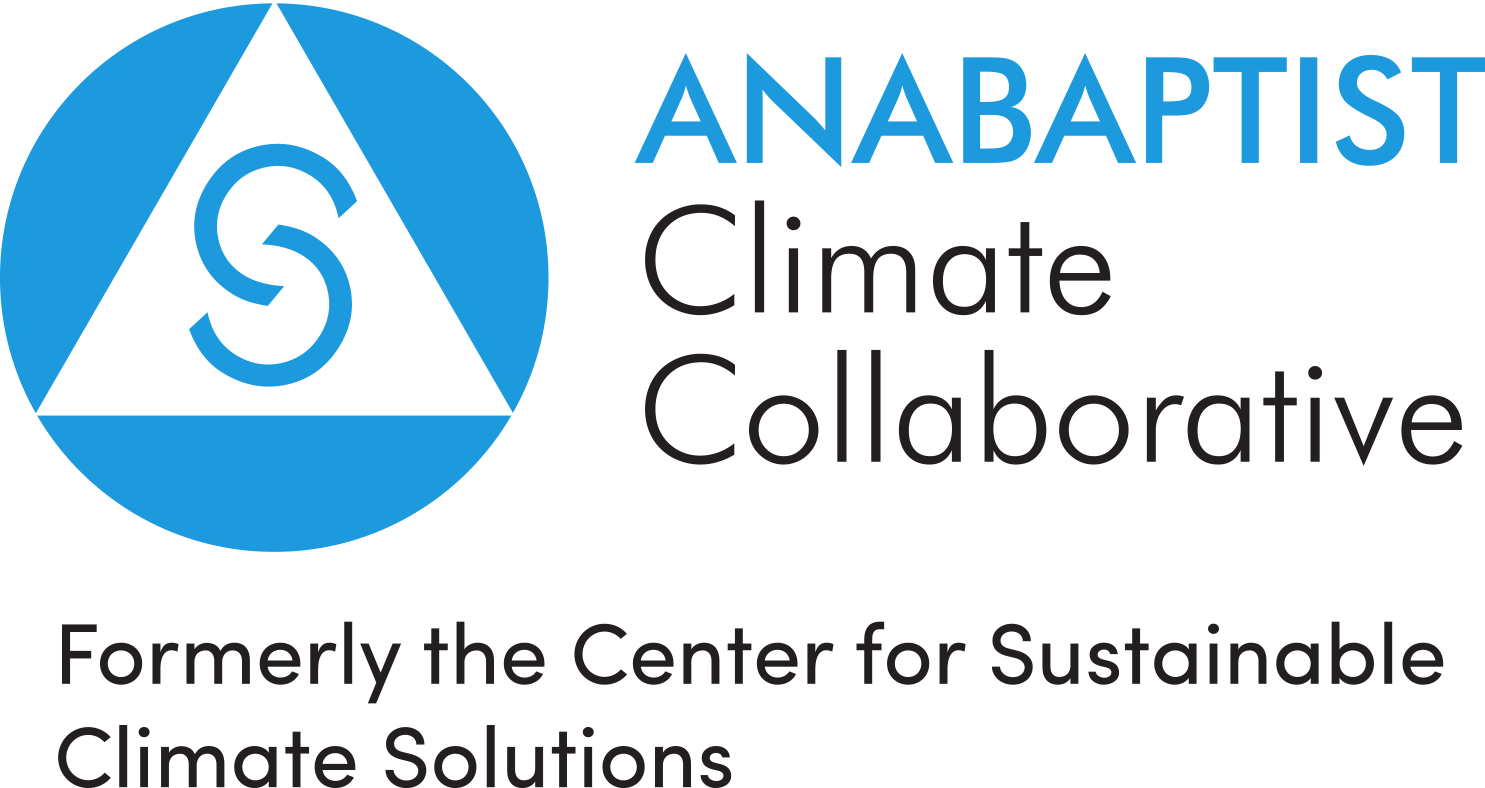Making a Difference: A Reflection on the CSCS Sustainability Summit
by Doug Graber Neufeld; September 16, 2022
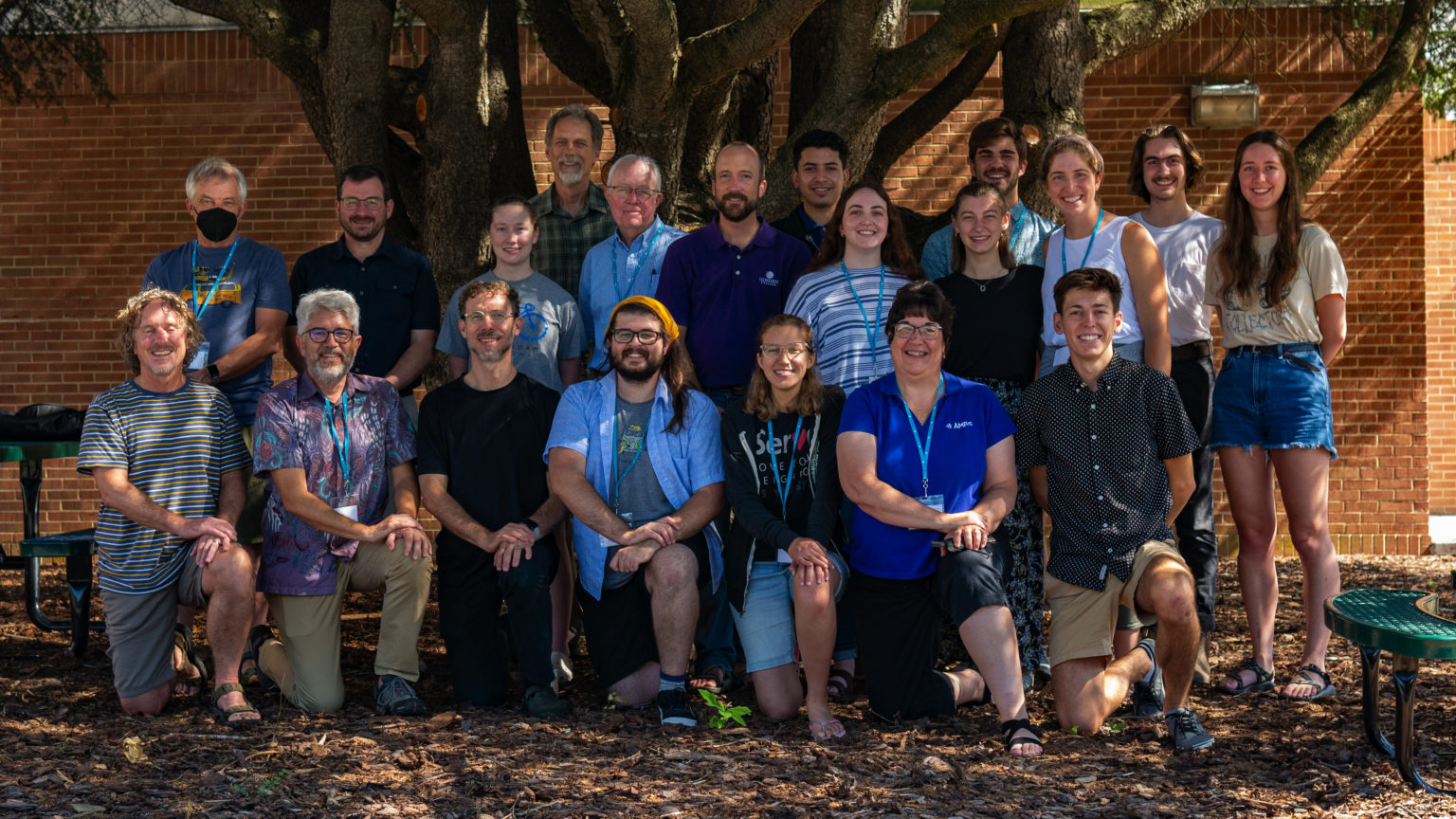
Together we can make a difference. We say that a lot, but until this summer, there has not been a chance for Mennonite institutions of higher education to come together and practice collective reflection and action that is focused on climate change, and the care of creation.
In early August, CSCS (soon to be incorporated as a new organization, the Anabaptist Climate Collaborative) invited ten Mennonite institutions in the US and Canada to join together at Eastern Mennonite University for an intensive three days of figuratively and literally walking together in a time of reflecting on our commitments to taking care of the planet and all its inhabitants. Twenty students and faculty from six institutions were able to join together for a variety of activities.
Participants drew from their experiences to have conversations in workshops with topics that ranged from “Counting the Cost: Carbon and Nitrogen Footprinting” to “Hope and Despair in Times of Climate Change.” Case studies of successes and challenges at two colleges gave participants the chance to identify lessons to take back to their own institutions.
“I thought the most useful part of our meeting was simply being together and sharing experiences and ideas,” said Ken Friesen, a faculty member from Fresno Pacific University. “Hearing from folks from other Anabaptist institutions gave me both energy and hope that we could also push more change. I was most impressed with the students and hearing their longing for and their commitment to change their institutions.”
A highlight of the event was having opportunities to get out and connect together with the natural world in the local Appalachian mountains. One full day was spent at nearby Shenandoah National Park, where participants hiked to a rocky ridge overlooking the Shenandoah valley, and met with a ranger to hear about the history of the park, and how climate change is affecting that ecosystem. Participants had a memorable afternoon with the ranger guiding them on how to census red-backed salamanders for a citizen science project. Data from the exercise combines with that of other groups, and helps the park plan for how salamander populations will be impacted by the changing climate.
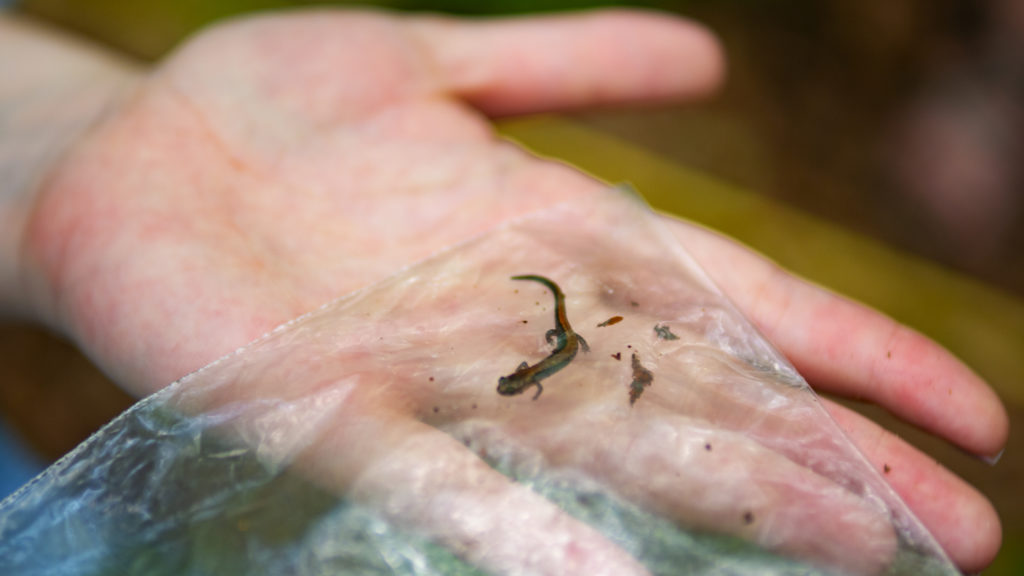
The day was capped by a discussion with archaeologist and James Madison University professor Carole Nash, who helped the group think about how sustainability connects with our obligations to Native American communities. “I particularly appreciated the input by Dr. Carole Nash who addressed the questions, ‘What does it mean to know a place? What does it mean to be ruptured from place, and how do you acknowledge that?’ At Anabaptist Mennonite Biblical Seminary, we are working at both creation care/sustainability and acknowledging the indigenous history of our place, and Dr. Nash’s presentation helped me to imagine new ways that these two themes intersect”, said Janeen Bertsche Johnson, Director of Campus Ministries at AMBS.
Participants spent the last morning identified a range of possible actions for their institutions to work on individually or together:
- How do we continue to collaborate together through regular events such as annual meetings or regular online events?
- How can we support youth in their efforts to respond to climate change by connecting together through direct climate actions, or through recent graduates?
- How can we be accountable to each other as institutions, such as sharing climate footprints and working together on goals to reduce this?
- Are there ways we can share information and pool resources, such as shared curricular and co-curricular events?
The conference wrapped up Sunday with local CSCS supporters joining the group for a panel discussion with students from four colleges, who talked about the actions they hope will happen on their campuses in the coming year, and how their efforts can best be supported.
“Part of our discussion at the conference was recognizing that climate change is a much bigger problem than individuals or small colleges can fix, however there are a lot of things we can do to reduce our climate footprint and to benefit the life and ecosystems that exist on our campuses,” said Goshen College student (and CSCS climate ambassador) Alena Miller.
Campus Sustainability Ambassadors took their message of sustainability to their senators and representatives in Washington DC on Monday after the conference as part of two days of training that followed the conference. Campus Sustainability Ambassadors are representatives that initiate activities on each of their own campuses, and work together throughout the year to inspire and support their collective efforts. New ambassadors were joined by several ambassadors from last year who were able to encourage and advise the new ambassadors as they plan for the year. CSCS staff joined the ambassadors for a full day of climate advocacy in Washington DC led by the Mennonite Central Committee Washington DC office, including CSCS intern and Eastern Mennonite University student Micah Buckwalter.
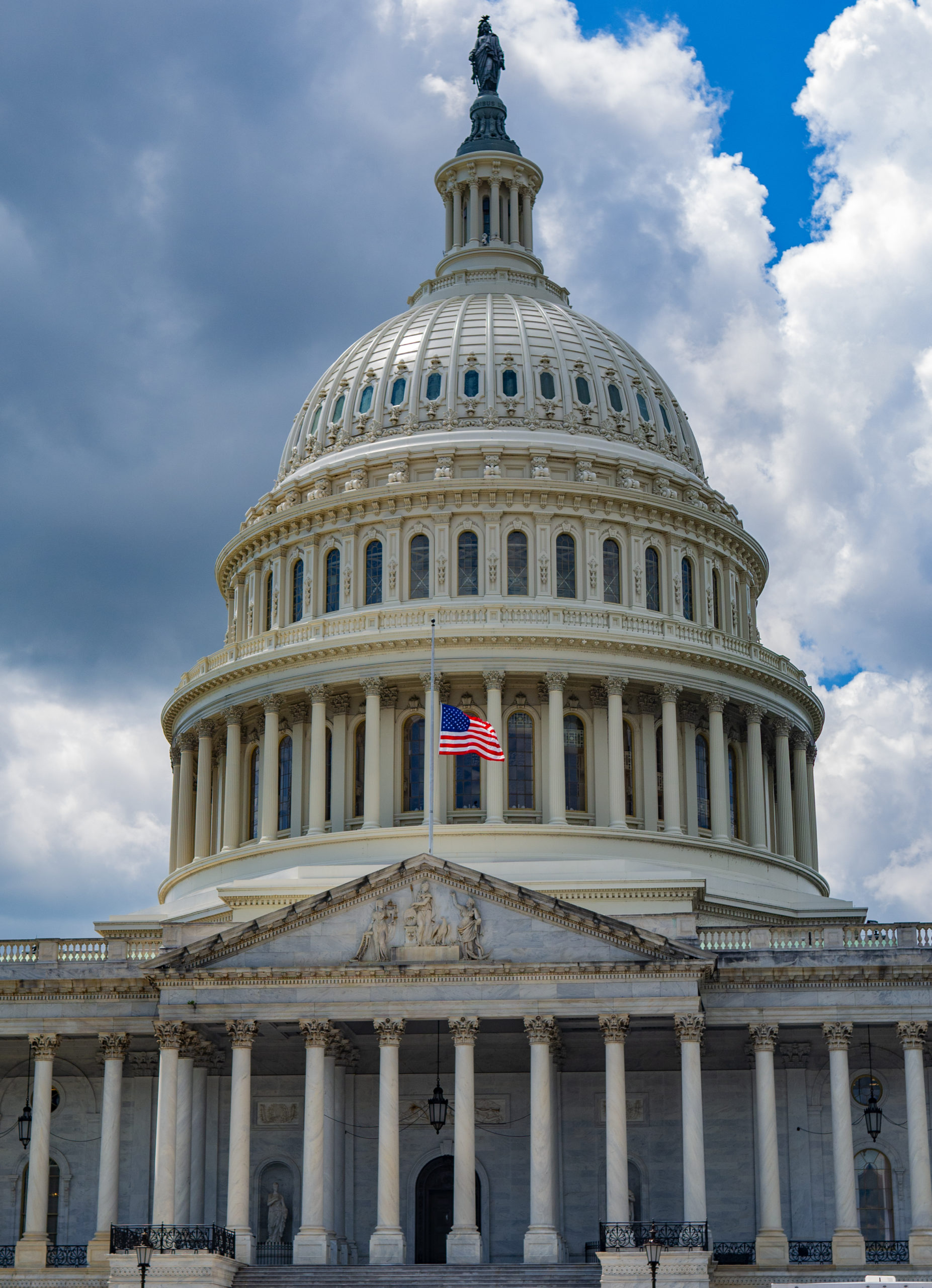
Miller summed up the sentiment of the group well: “Micah 6:8 says to do justice, love mercy, and walk humbly with our God. If we are to do justice, then together we must take steps to move away from practices that harm creation. I hope that continued collaboration at our universities will help bring about positive change at our institutions where it is needed, and the continuation of the good things already happening.”
Six of these institutions from across the continent were represented at this event: Anabaptist Mennonite Biblical Seminary, Bluffton University, Canadian Mennonite University, Eastern Mennonite University, Fresno Pacific University, and Goshen College. Other colleges expressed their desire to come, but faced schedule conflicts. We consider the summit a success, and look forward to both the fruits of the passion for climate expressed at the summit, as well as hopes for future summits to continue this work.
